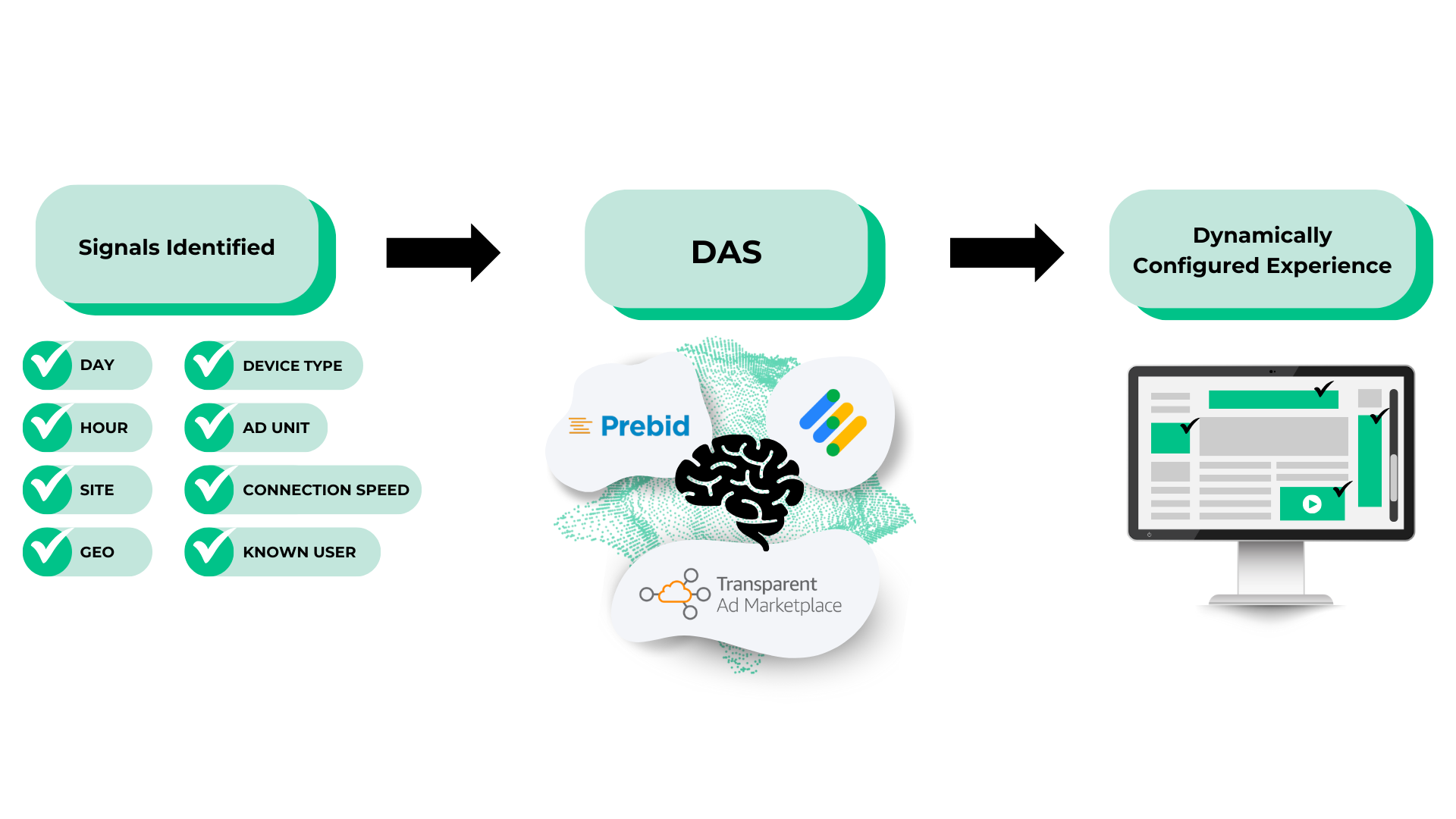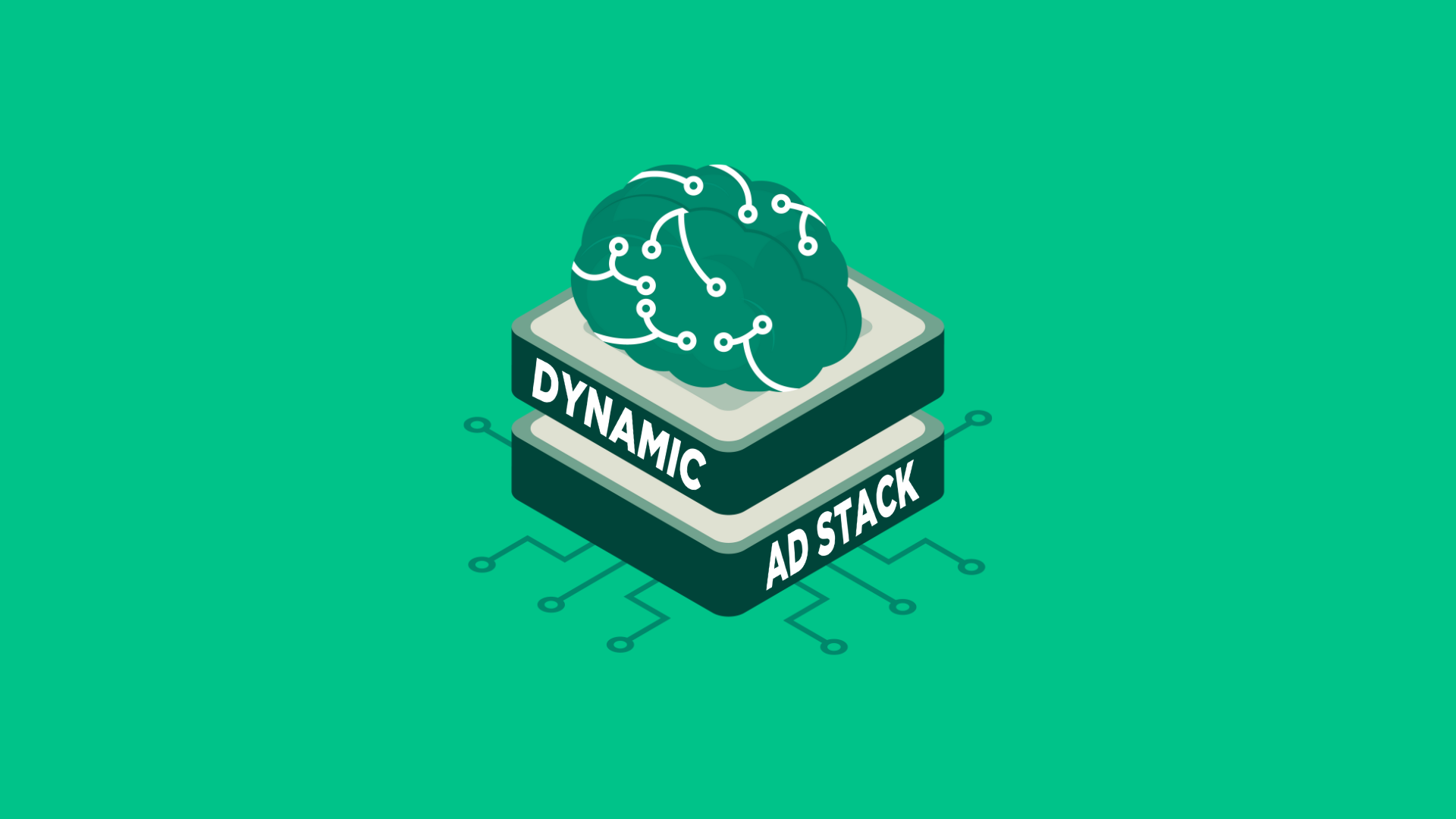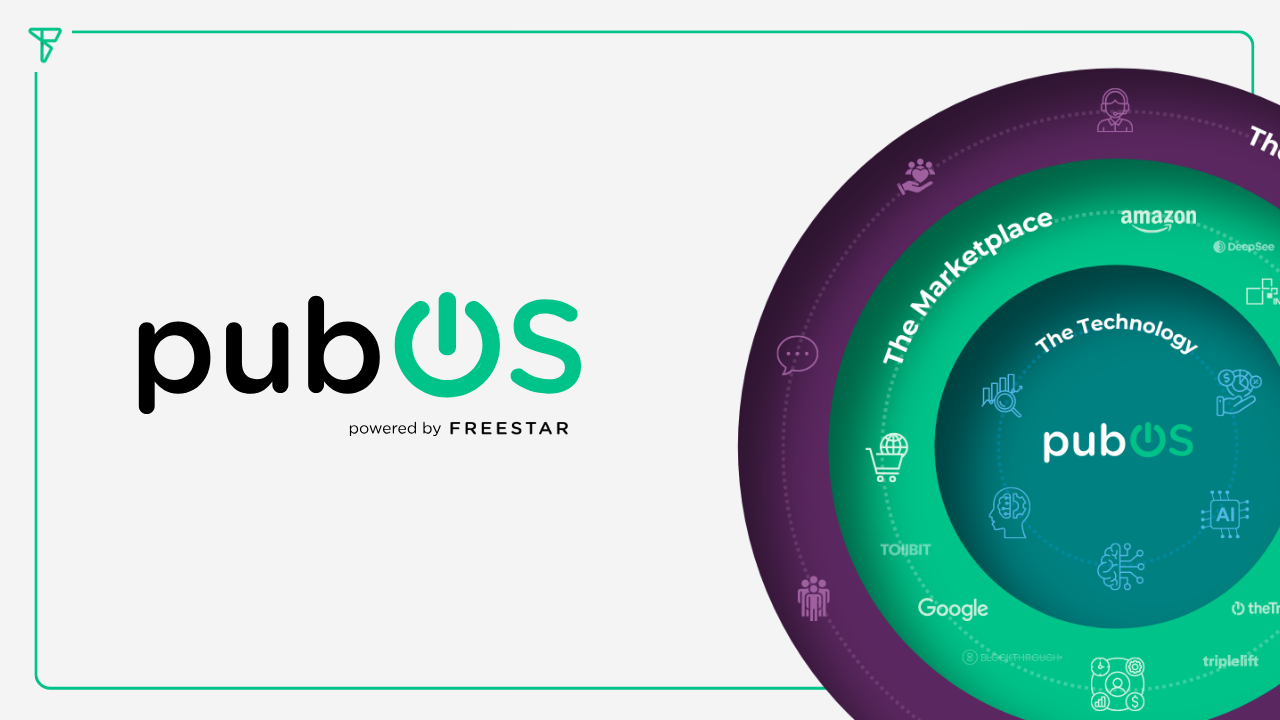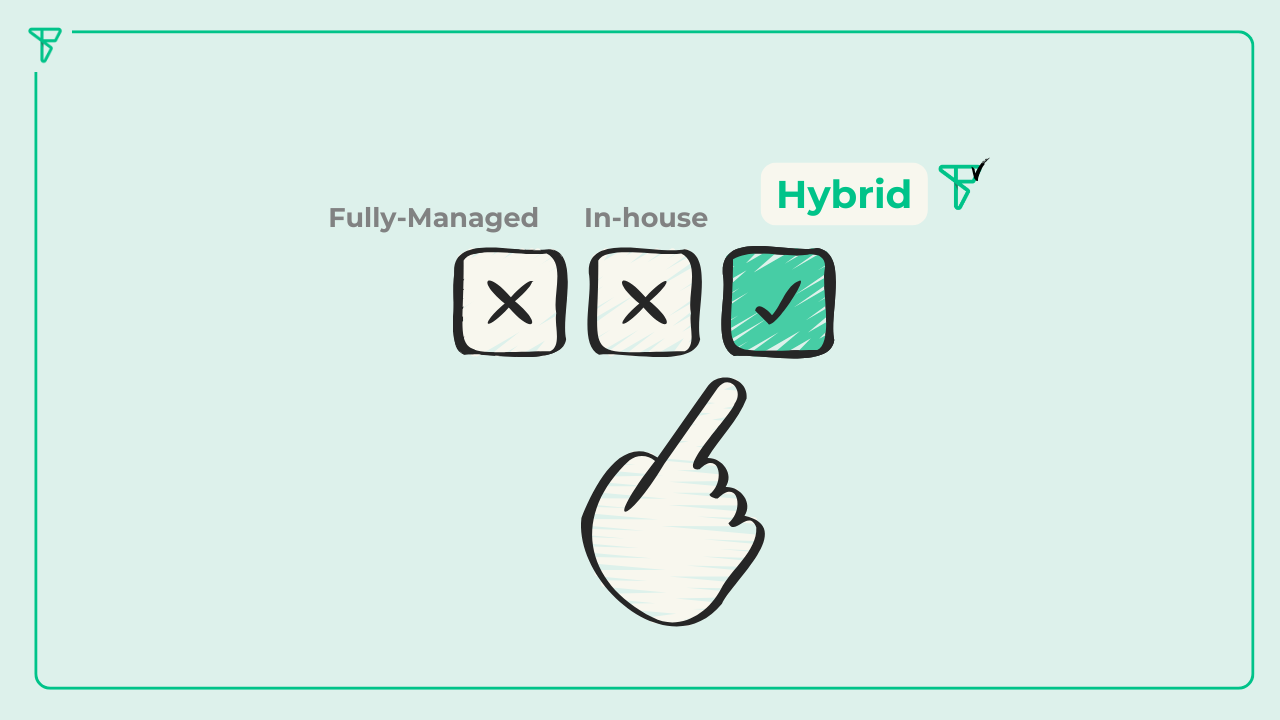The Challenge of Ad Stack Optimization
In the fast-paced world of digital advertising, optimizing ad stacks has long been a cumbersome and recurring challenge for publishers. The manual efforts involved in adjusting bidder configurations, managing timeouts, setting floor prices, and adapting to market dynamics have often consumed valuable time and resources. As the industry evolves, the need for a dynamic solution becomes increasingly apparent. Enter Freestar’s game-changing innovation – the Dynamic Ad Stack.
What is Dynamic Ad Stack?
Freestar’s Dynamic Ad Stack (DAS) redefines ad optimization by leveraging the power of machine learning to personalize every ad request. Unlike traditional static ad configurations, DAS constantly learns and adapts to market dynamics, ensuring optimal performance and revenue maximization.
So how does it work? DAS operates by using a percentage of the traffic to conduct ongoing experiments. The data gleaned from these experiments is then used to optimize the remaining traffic, setting the configuration dynamically based on, amongst other factors, geo and device type.
The ‘Dynamic’ in Dynamic Ad Stack
DAS earns its ‘dynamic’ title by optimizing several key elements in the ad configuration on a publisher’s website based on a range of factors. This results in an ever-changing configuration.
Freestar also continues to invest in DAS, so the feature set is also dynamic – there is a full roadmap of upgrades planned for 2024 and beyond. At the time of writing, DAS optimizes the following elements:
- Bidder stack: Identifying the optimal set of bidders for each auction to maximize revenue.
- Bidder timeouts: Reducing timeouts dynamically without compromising demand, resulting in faster auctions and improved page speed.
- Client vs Server: Dynamically updating bidders to determine the best combination of client-side and server-side setups for each publisher, considering factors like speed and total number of bidders.
- Floor price: Setting a minimum CPM per auction to maximize revenue per ad request
DAS optimizes per site and ad unit and time of day. Some of the additional factors used to make the optimization decision are:
- Geo: Where the user is in the world.
- Device type: Whether the user is on a mobile device, desktop or tablet and what browser they are using.
- User’s network speed: Different configurations, especially whether bidders are run client or server side, can be influenced heavily by the user’s speed of connection.
Why Publishers Need Dynamic Ad Stack
Real-Time Ad Request Optimization
DAS excels in real-time ad request optimization. This capability ensures that publishers consistently deliver the most relevant and lucrative ads to their audience.
Fine-tuning Demand Partners
One of the standout features of DAS is its ability to fine-tune demand partners dynamically. By analyzing performance metrics, DAS optimizes the selection of demand partners for each auction, maximizing revenue and ensuring a competitive edge for publishers.
Page Loading Speed Optimization
In an era where user experience is paramount, DAS focuses on optimizing page loading speed. By dynamically adjusting bidder configurations and reducing timeouts, DAS enhances the efficiency of the auction process, resulting in faster page load times and a more satisfying user experience.
Increased Ad Revenue
Ultimately, the primary goal of DAS is to increase ad revenue for publishers. The dynamic optimization of bidder configurations, coupled with real-time adjustments, contributes to consistently higher revenue generation, making DAS an invaluable tool for publishers seeking to maximize their monetization potential.
Future-Proofing with Dynamic Ad Stack
Navigating Privacy Laws
As privacy laws evolve and the industry adapts to the post-third-party cookies era, DAS remains a future-proof solution. By relying on machine learning and real-time adjustments, DAS ensures publishers can navigate the changing landscape of privacy regulations seamlessly.
The Technology Behind Dynamic Ad Stack
Leveraging AI and Machine Learning
At the core of DAS’s success is its reliance on artificial intelligence and machine learning. These technologies enable DAS to continuously predict the best ad stack setup, learning from historical performance and experiment data to optimize auction outcomes.
Big Data and Cloud Computing
Underpinning the DAS AI and ML components is an enormous amount of data. By exploiting the big data capabilities of a 100% cloud computing environment, DAS ensures that it is always adapting to the latest market trends, providing publishers with a cutting-edge solution for ad optimization.
Dynamic Ad Stack: A Game-Changer in Ad Optimization
Freestar’s Dynamic Ad Stack revolutionizes ad optimization by transforming it from a time-consuming manual task into a dynamic, AI-powered solution. By constantly learning, adapting, and optimizing, DAS ensures that publishers can stay ahead of the curve in the ever-evolving landscape of digital advertising. As the industry faces new challenges, DAS stands out as a beacon of innovation, offering publishers a powerful tool to maximize revenue whilst still providing a great user experience. Embrace the future of ad optimization with Freestar’s Dynamic Ad Stack.




